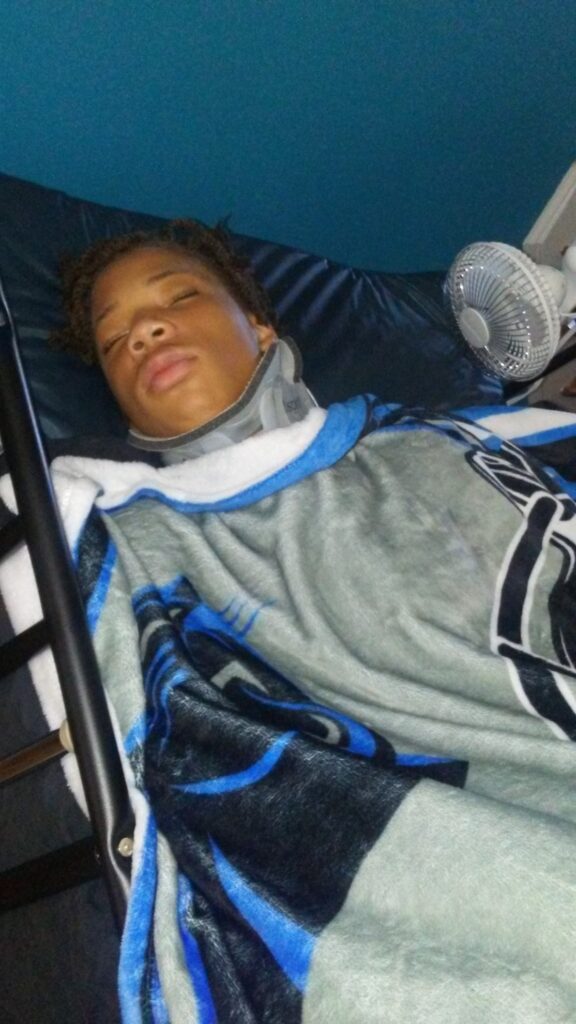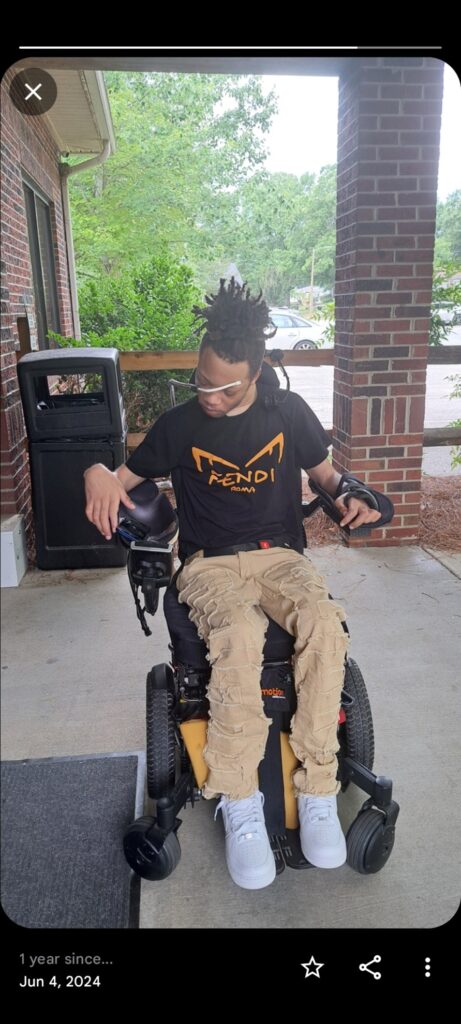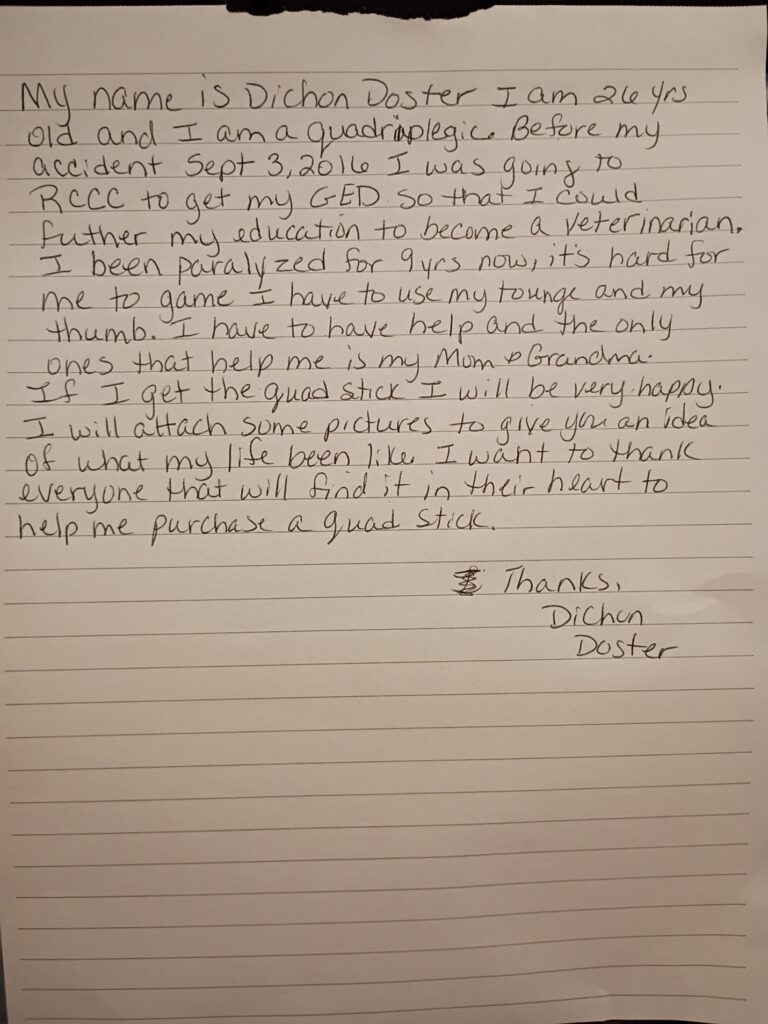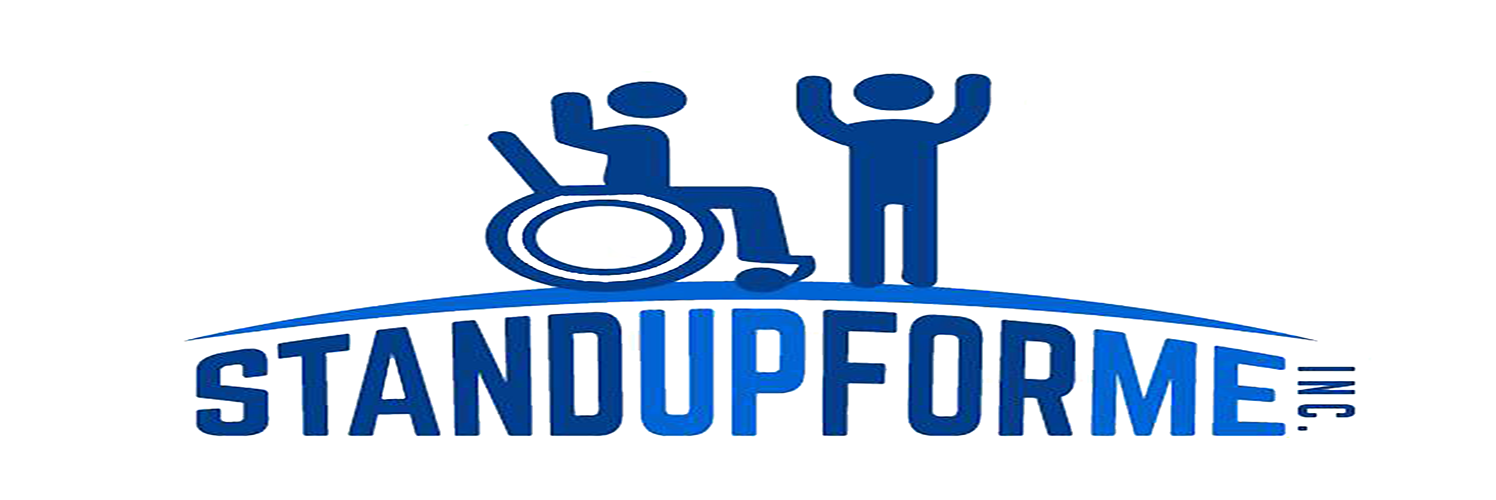
Helping Dichon Reclaim Independence: Why Assistive Tech Matters
Dichon Doster
Dichon Doster, at just 26 years old, has faced the reality of quadriplegia since his injury on September 3, 2016. Despite daily challenges, he’s working on earning his GED and dreams of returning to gaming—a passion that once brought him joy, community, and connection. With the right adaptive technology, Dichon can reclaim independence and productivity.
Donate: Donate to STAND UP FOR ME INC

The Bigger Picture
More than 5.4 million Americans live with paralysis—about 1 in 50 people. The most common causes include stroke, spinal cord injury, multiple sclerosis, and cerebral palsy. For those with traumatic spinal cord injuries, there are an estimated 18,000 new cases each year. The lifetime cost of care for someone with tetraplegia can reach millions of dollars, often leaving little room for adaptive technology that enhances quality of life.
These numbers highlight a pressing reality: while medical care is critical, true independence often comes from access to the right tools.
The Power of the QuadStick
The QuadStick is a mouth-operated controller designed for people with quadriplegia. Using sip-and-puff sensors and lip movement, it can replicate the functions of a standard video game controller, mouse, or keyboard. This makes it possible to not only return to gaming, but also to use computers for education, communication, and productivity.
For Dichon, a device like the QuadStick means:

- Autonomy: Regaining the ability to control technology hands-free.
- Community: Reconnecting with gaming friends and online spaces.
- Productivity: Accessing tools to continue his GED and future goals.
- Confidence: Rebuilding independence in meaningful ways.
Why It Matters
Assistive technology like the QuadStick provides more than entertainment—it opens doors to connection, learning, and self-reliance. For individuals living with paralysis, it can be the difference between isolation and engagement, limitation and empowerment.
By supporting Dichon, we’re not just funding a device—we’re investing in his future, his joy, and his independence. Together, we can help him reclaim what paralysis tried to take away.
Letter from Dichon

